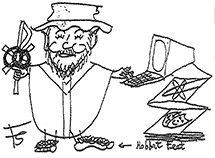Einstein’s daily task is to try to cheer up Kurt Gödel.
Einstein is the most famous physicist in the world, who has made a revolution in the way we look at space and time, gravity, the limits of the speed of any object, and the nature of minute particles, smaller than atoms.
Gödel, at the age of 24, had upset the calculations of two very famous mathematicians (and philosophers) Bertrand Russell and Alfred North Whitehead.
Russell and Whitehead had published a huge book full of calculations with a Latin title. They had been trying to “show that all mathematics can be analyzed as straightforward logical operation” (Bronowski, “Origins of Knowledge and Imagination,” 1978, page 75). To do so ”axioms” had to be used: axioms are assumptions mathematicians have to make before they can build proofs.
In the 1930’s young Gödel showed conclusively that Russell and Whitehead were wrong in assuming that systems could contain all their own proofs: that is, prove their own axioms.
The scientific world took this to mean that all logical systems of thought were incomplete in themselves: they needed something from outside their borders to assert their truth.
What had that to do with religion? Well, most religious believers did not realize that a great score had been made on behalf of belief in God, versus those who held that only science had the facts about the universe.
Why? Because, eventually Gödel’s mathematical proof, in its impact on philosophy, drew attention to the human mind and the human person as the source and decision-maker about what was truth and what was not: the source of assumptions and axioms.
If human beings experience an expansion of the personal self that seems to be “a wideness of God’s mercy like the wideness of the sea” -then the experience of whatever God might be will be seen as having something to do with proving truth or falsehood.
Faith, or Trust, underpins all human endeavours: from faith in another person, in art or beauty or goodness, all the way to faith in an axiom or a system of knowledge. Systems are only completed by the personal convictions of those who believe the systems.
Anyone has a right not to believe in God as experienced by other people, or in any God at all. But beware of those who in the name of science call faith in God “rubbish.” For there is the story of the dream a man had of a rubbish collector who found deep within the rubbish, the face of the living God - love discovered in the rubbish of the human heart.
Insert text here

